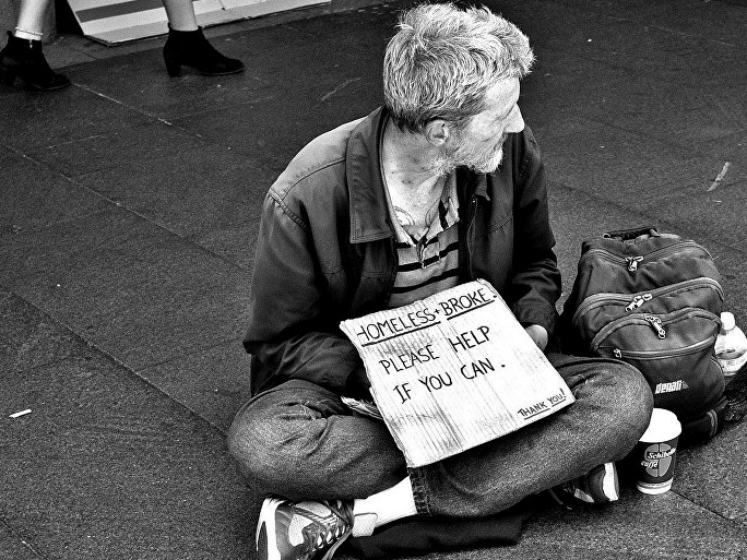
The growing gap between the richest and poorest in the UK is directly linked to higher rates of poverty, according to new research from the London School of Economics and Political Science.
Both inequality and poverty are now on the rise again and predicted to increase further in the next 5 to 15 years, but it has never been established if the two are directly linked. Researchers from LSE’s Centre for Analysis of Social Exclusion (CASE) explored the different types of inequality including income inequality and concentration of wealth, over the period 1961 to 2016.
The report, Double Trouble, which was commissioned by Oxfam, shows that a positive correlation between income inequality and income poverty in the UK can be clearly established. Statistical analysis found that, on average, during the last 50 years a one point increase in income inequality - as measured using the Gini coefficient – was associated with an increase in relative poverty of 0.6 percentage points.
Dr Abigail McKnight, who led the research, said: “It is well documented that economic inequality in the UK is high relative to many comparable advanced economies. The key finding of this research is that relative income poverty rates tend to be higher when income inequality is higher and this suggests that increases in income inequality are associated with increases in relative income poverty rates.”
Rachael Orr, Oxfam’s Head of UK Programmes, said: “This research shows that trying to tackle poverty without taking measures to reduce inequality, is like entering a fight with one hand tied behind your back. It explodes the myth that, for those who care about tackling poverty, the gap between rich and poor doesn't matter.”
The report also examines the consequences of inequality, and in particular points to evidence that it leads to lower overall economic growth as well as negative consequences for some individuals and their families, and wider society. Higher levels of inequality are shown to sustain higher levels of poverty through a variety of mechanisms. One of these is the growing polarisation between ‘the rich’ and ‘the poor’. This affects people’s perception of inequality, results in a lack of understanding about what it is like to live on a low income, and this lack of empathy has important implications for support for public policy designed to reduce inequality and tackle poverty.
Examining the role of public opinion, voting behaviour and broader features of the political economy the report finds that while most Britons believe that inequality is too high, there is a tendency for people to underestimate the true level of inequality and overestimate social mobility; consequently, there is less pressure put on governments to reduce inequality to a more acceptable level. Increasing inequality in the UK has also been related to a change in the composition of the voting electorate, who are now better-off, on average, than the population as a whole. This has skewed government policy in favour of better-off households, and governments which are less likely to tackle poverty and inequality.
From a review of existing literature, there is widespread consensus suggesting that a growing rich and powerful national and international elite, with access to political power and decision makers, are influencing legal frameworks and government policy in their favour. This leads to a greater concentration of income and wealth, fewer resources to be shared among the rest of the population and less concern for low-income households.
The report found that wealth inequality has increased in recent years, which seems to be driven by an accumulation of wealth at the top of the distribution and younger households being priced out of the housing market due to a combination of falling real incomes, house price inflation and limited access to credit. The concentration of private wealth among a small elite has continued to increase and the latest figures for 2016 suggest that the wealthiest 1% own nearly 24% of private wealth in the UK.
The report concludes that for organisations and governments concerned with reducing UK poverty, it is important that they focus on addressing high levels of economic inequality if they are to be successful. It recommends that the recently agreed UN Sustainable Development Goals, which the UK government has signed up to delivering in the UK and which include a commitment to reduce inequalities and leave no-one behind, offer a real vehicle for action for the UK Government to create a fairer society, with the gains from any future growth being shared more equally.
Double Trouble. A review of the relationship between UK poverty and economic inequality by Abigail McKnight, Magali Duque and Mark Rucci is available here:
http://policy-practice.oxfam.org.uk/publications/double-trouble-a-review-of-the-relationship-between-uk-poverty-and-economic-ine-620373